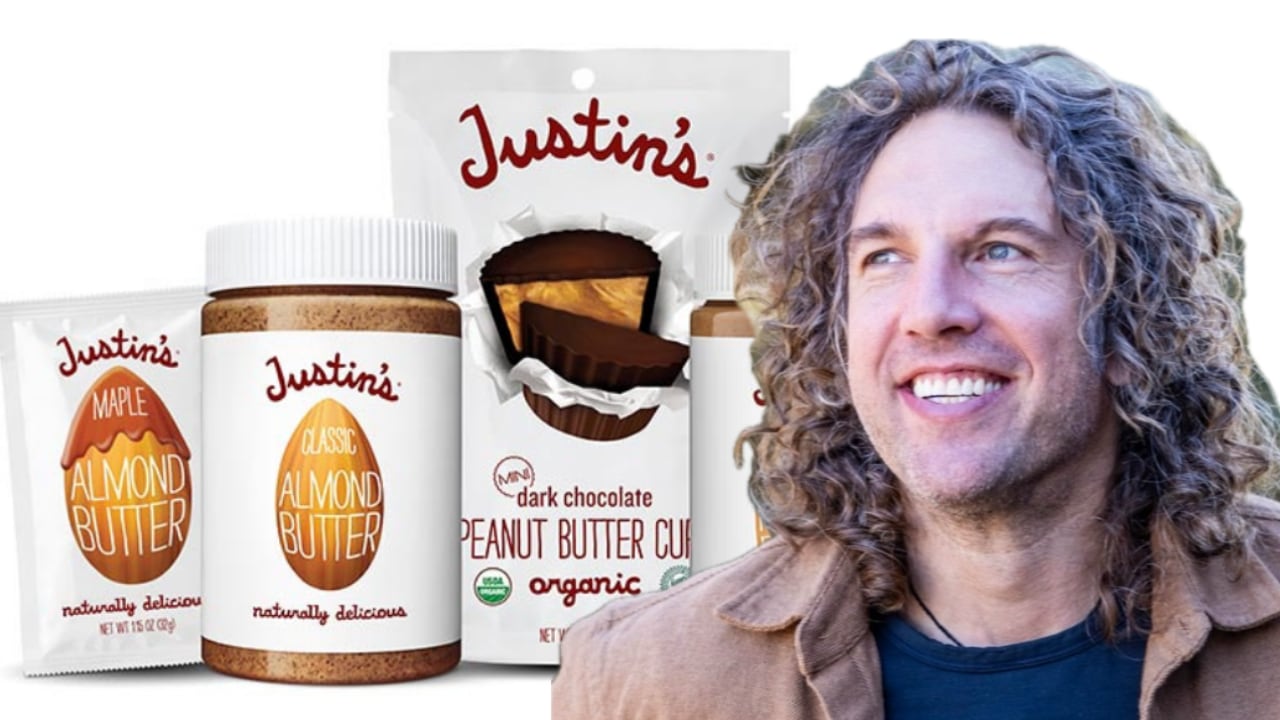When Justin Gold, founder of his namesake snack company Justin’s, left the business in 2021, he had a gut feeling he’d return someday.
That day arrived in late October, when Justin’s owner Hormel Foods Corp. announced plans to sell a 51% stake in the company to private equity firm Forward Consumer Partners. Under the restructured company, Gold will return as a strategic advisor and member of the board of directors and Peter Burns will resume his role as CEO.
“I always felt like I would probably get a chance to go back and work with Justin’s – I didn’t know when,” Gold said in a recent interview.
Hormel at the helm
Hormel purchased the company for about $286 million nine years ago, just 12 years after Gold started Justin’s by selling handmade nut butters at his local farmer’s market in Boulder, Colo.
Gold was courted by several companies during the mid-teens, but sold to Hormel because the fledgling company needed “additional resources for everything really, from creating safe, high-quality reliable products to sourcing raw materials, expanding our distribution and learning best-in-class strategies in marketing and HR,” he said in 2016.
The brand has struggled in recent years, though, with Hormel recording a $28.4 million impairment charge on the brand in its 2023 annual report, lowering its overall value, and signaling diminished expectations for the brand’s future performance.
Hormel appears to have stopped the bleeding in fiscal year 2024, when it reported no further write-downs for the brand.
Gold said he’s ready to jump back into the business and get started by building on the company’s successes.
“I think the first thing we need to do is make sure that we’re winning in the stores that we’re in, and that could be price architecture, that could be messaging on pack, that could be flavor mix,” he said. “Then we have to find the adjacencies where we can develop new products that are meeting an unmet consumer need.”
Innovation is key
It’s been nearly two decades since Justin’s released its single-serve peanut butter squeeze packs, which helped catapult the brand into stores across the country.
Gold says it’s time for more products that solve problems. “The squeeze pack solved a problem for me, and it was portable protein,” he said. “What are other problems consumers have around plant-based protein, and how can we create products that solve those problems?”
Snacking is a “big opportunity” for Justin’s, Gold said, adding that consumers are more price conscious than ever.
“Hormel has been around for 100-plus years, so they know what they’re doing,” he said. “I think it’s just pausing and taking a look at the business and seeing what’s working and what isn’t working and then making decisions.”
Despite the setbacks, Gold said he believes Hormel has made some “really good decisions,” but those strategies just might need some adjustment.
“A lot of times when things aren’t working, they’re not just bad ideas – it’s just maybe the price is wrong or it’s in the wrong part of the store or the net weight is wrong or it’s merchandised incorrectly,” Gold explained.
Maintaining a laser focus on the brand is Gold’s strategy in winning loyalty, something that Hormel, with its massive portfolio of products, was unable to achieve.
“They have some big brands that really contribute to the bottom line, and as a public company, they have to focus on what’s going to drive growth and margin for the overall enterprise,” Gold said. “And at the end of the day, Justin’s was such a small part that it didn’t deserve all of their attention, and so by carving it out, it allows us to put the attention on it to allow it to grow.”
Back to basics
The business has almost come full circle for Gold, who said Justin’s needs to “first go back and make sure we’re winning in grocery, which is where we started.”
Once the grocery game is on track, Gold aims to seek out new opportunities – c-stores and natural grocery stores are two of the biggest, he said.
“I think we just need to figure out what products at what price and where are they merchandised – I think we have a lot of work to do,” he said. “Food service is a huge opportunity and corporate cafeterias and universities. There’s a lot of white space there, and we just have to be patient but also deliberate.”
That process will involve coordinating with Forward Consumer Partners, the brand’s second substantial partnership with a private equity firm. In 2013, Justin’s sold a minority stake in the company to VRM Partners, which helped grow the company from 13 to 45 employees, and margins grew by an estimated 25% in a few years, according to a story in Middle Market Growth in 2020.
Gold envisions another private equity win with Forward Consumer Partners. Matt Leeds, managing partner of the private equity firm, called it a “textbook asset” for Forward Consumer Partners because of its powerful brand recognition and track record of success.
“I’m honored that Matt saw that opportunity and was persistent in getting Hormel to do a partnership and to bring Peter in,” Gold said. “I think we’re going to do something really special. And it’s very rare that you get a chance to do this again, and I just feel very lucky.”

